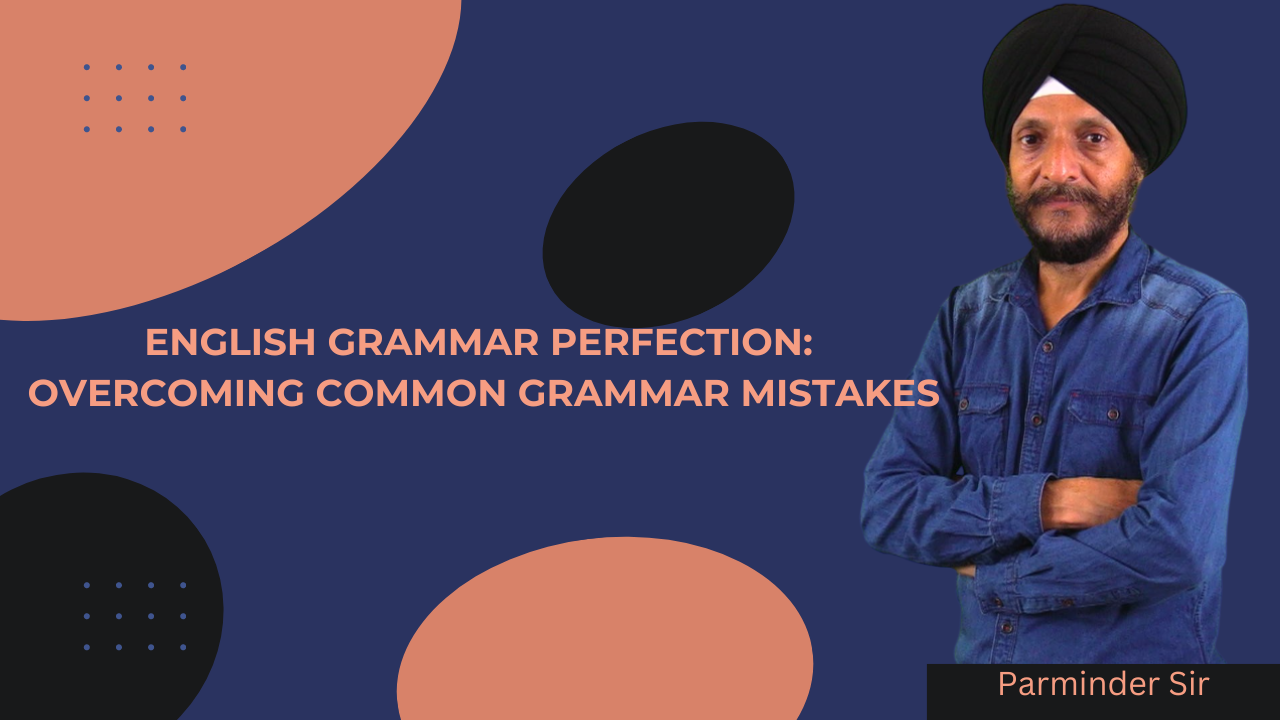English Grammar, Language
English Grammar Perfection: Overcoming Common Grammar Mistakes
Original price was: ₹4,599.00.₹4,299.00Current price is: ₹4,299.00.
- What are the consequences of a misplaced modifier on the clarity and understanding of a sentence?
- How can you identify and correct misplaced modifiers in your writing?
- How does the phrase “a lot” differ in meaning from the word “allot”?
- How is the word “peak” used in a sentence, and what does it typically refer to?
- What is the meaning and usage of the word “peek” in English grammar?
- How can you choose the correct word between “peak”, “peek”, and “pique” in a sentence?
- How can you choose the correct word between “whether” and “weather” in a sentence, and what are some tips for remembering the difference?
- How can you determine whether to use “into” or “in to” in a sentence, and what are some common mistakes to avoid?
- What is the difference in meaning and usage between the words “to”, “too”, and “two” in English grammar?
- What number comes after one and before three?
- Is it correct to place a comma between the subject of a sentence and its verb? (True or False)
- Should a comma be used to separate a verb from its direct object? (True or False)
- Is a comma necessary between two verbs that share the same subject? (True or False)
- Do you need to use a comma before a dependent clause that appears at the end of a sentence? (True or False)
- What is the difference in meaning and usage between the words “your” and “you’re” in English grammar?
- What is the definition and example of a compound sentence in English grammar?
- What does the acronym FANBOYS stand for?
- Why is the use of commas crucial in compound sentences, and what would happen if commas were omitted?
- What is the definition of a complete sentence in English grammar, and how does it differ from a sentence fragment?
- What are the key characteristics of a sentence fragment, and how can you identify one in your writing?
- Why are sentence fragments generally considered ineffective in formal writing, and what are the consequences of using them?
- How can you determine whether to use “farther” or “further” in a sentence, and what are some common mistakes to avoid?
- Is it true that the plural form is often formed by simply adding “s” to the noun, or are there exceptions to this rule?
- Is it true that the possessive form is typically formed by adding an apostrophe and an “s” to a noun, or are there exceptions to this rule?
- What is the primary function of the pronoun “who” in English grammar, and how does it differ from “whom”?
- Does “whom” refer to the person performing the action in a sentence? (True or False)
- Does “whose” show ownership or possession? (True or False)
- Is “who’s” a contraction that is commonly used in formal writing? (True or False)
- What is the definition of a pronoun in English grammar, and how do pronouns help to replace nouns in sentences?
- What are some common types of pronoun errors that can occur in writing, and how can they be avoided?
- What is meant by an antecedent?
- What is the primary function of the word “good” in English grammar, and how is it used as an adjective?
- What does “well” describe when used as an adverb, and how does it differ from “good” in this context?
- What is the purpose of an introductory comma in a sentence, and when should it be used?
- What are some common types of capitalization errors, and how can they be avoided?
- What are pronouns?
- What happens when there is no clear antecedent in a sentence, and how can this lead to ambiguity or confusion?
- How does “there” differ from “their”, and what are some common
- What is the primary meaning of the word “lose” in English, and how is it used in sentences?
- What is meant by the word “loose”?
- What is the opposite of the word “loose” in English?
- What is the primary meaning of the word “assure” in English, and how is it used in sentences?
- How does “insure” relate to insurance and financial protection, and what are some examples of its usage?
- What are some key differences between “ensure” and “insure”, and how can you choose the correct word in a sentence?
- What is the definition of a subject pronoun in English grammar, and how does it function in a sentence?
- What is the correct usage of “I” and “me” in a sentence, and how do they differ in function?
- Is it grammatically correct to use “I” in the object position of a sentence?
- What is the function of commas in a series?
- What is Oxford Comma?
- Are there situations where a comma in a series is optional?
- What is the primary meaning of the word “then” in English, and how is it used in sentences?
- How does “than” convey a sense of comparison or contrast, and what are some examples of its usage?
- What is meant by the word “complement” in English grammar, and how is it used in sentences?
- What is the primary meaning of the word “compliment” in English, and how is it used in sentences?
- What are some common examples of incomplete comparisons, and how can they be rephrased to make them complete and clear?
- Why is it essential to use complete comparisons in writing and speaking, and what are the benefits of doing so?
- What are the benefits of using spell-check tools and proofreading our writing carefully?
- What are the potential consequences of sending an email or letter with incorrect spellings?
- What is the meaning of a preposition in English grammar?
- Is it grammatically incorrect to end a sentence with a preposition?
- What is the most common way to use the word “affect”?
- What’s the primary difference between the words “affect” and “effect”?
- What type of noun indicates ownership or possession?
- How can a possessive noun be formed from singular noun not ending in “s”?
- What is the general rule for writing numbers from one to nine in sentences, and when should they be written out in words versus numerals?
- What is the general rule for writing numbers that appear at the beginning of a sentence, and should they be written out in words or numerals?
- What do the ordinal numbers indicate?
- What is the purpose of subject-verb agreement in English grammar?
- What grammatical rule ensures the subject and verb in a sentence match in number?
- What are some key differences between “who” and “that”, and how can you choose the correct word in a sentence?
- How do overwordy sentences impede clear communication, and what are some examples of their usage?
- What is the main issue if a sentence contains unnecessary words or phrases?
- What is the difference between “of” and “have”?
- What are some common mistakes people make when using semicolons and colons?
- What is the benefit of using correct verb tense?
- Why is it important to avoid unnecessary shifts between verb tenses in a sentence or paragraph?
- Which verb tense (present, past, or future) is typically used when writing instructions or guidelines, and why is it preferred?
- What is the difference between the words “accept” and “except”?
- What is the meaning of “i.e.”, and how is it used in sentences?
- When should “e.g.” be used, and what are some examples of its correct usage?
- How do you form the possessive of a plural noun that ends in “s” and what are some examples of this?
- When is it appropriate to use an apostrophe to indicate pluralization, and what are some examples of this?
- How do “between” and “among” differ in meaning and usage, and what are some common mistakes to avoid when choosing between them?
- What is the general rule for choosing between “fewer” and “less”, and how do they differ in meaning and usage?


Reviews
There are no reviews yet.